Alzheimer’s disease is one of the world’s biggest health problems.
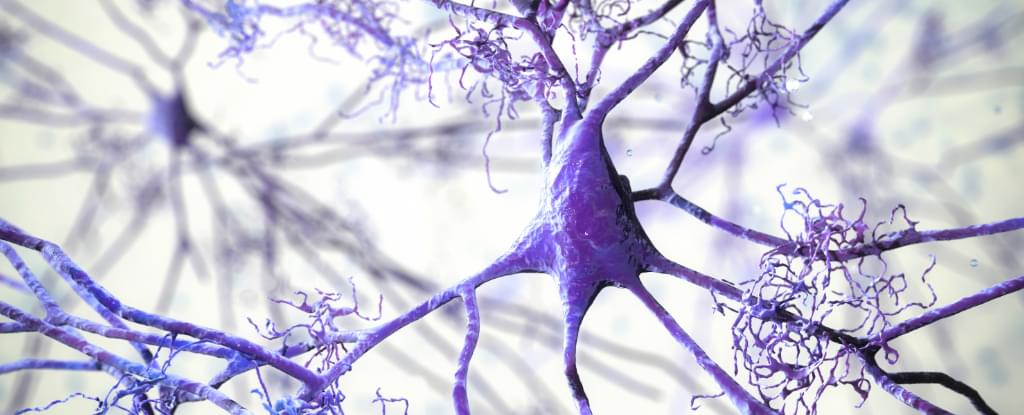

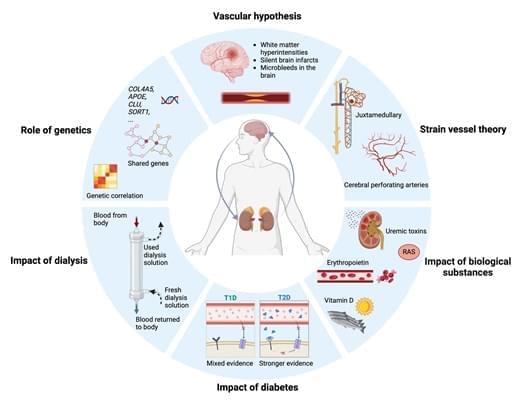

The NKF Workgroup for Implementation of Race-Free eGFR-Based Medication-Related Decisions suggests that health systems, health settings, clinical laboratories, electronic health record systems, compendia and data vendors, and healthcare practitioners involved with medication-related decision-making …
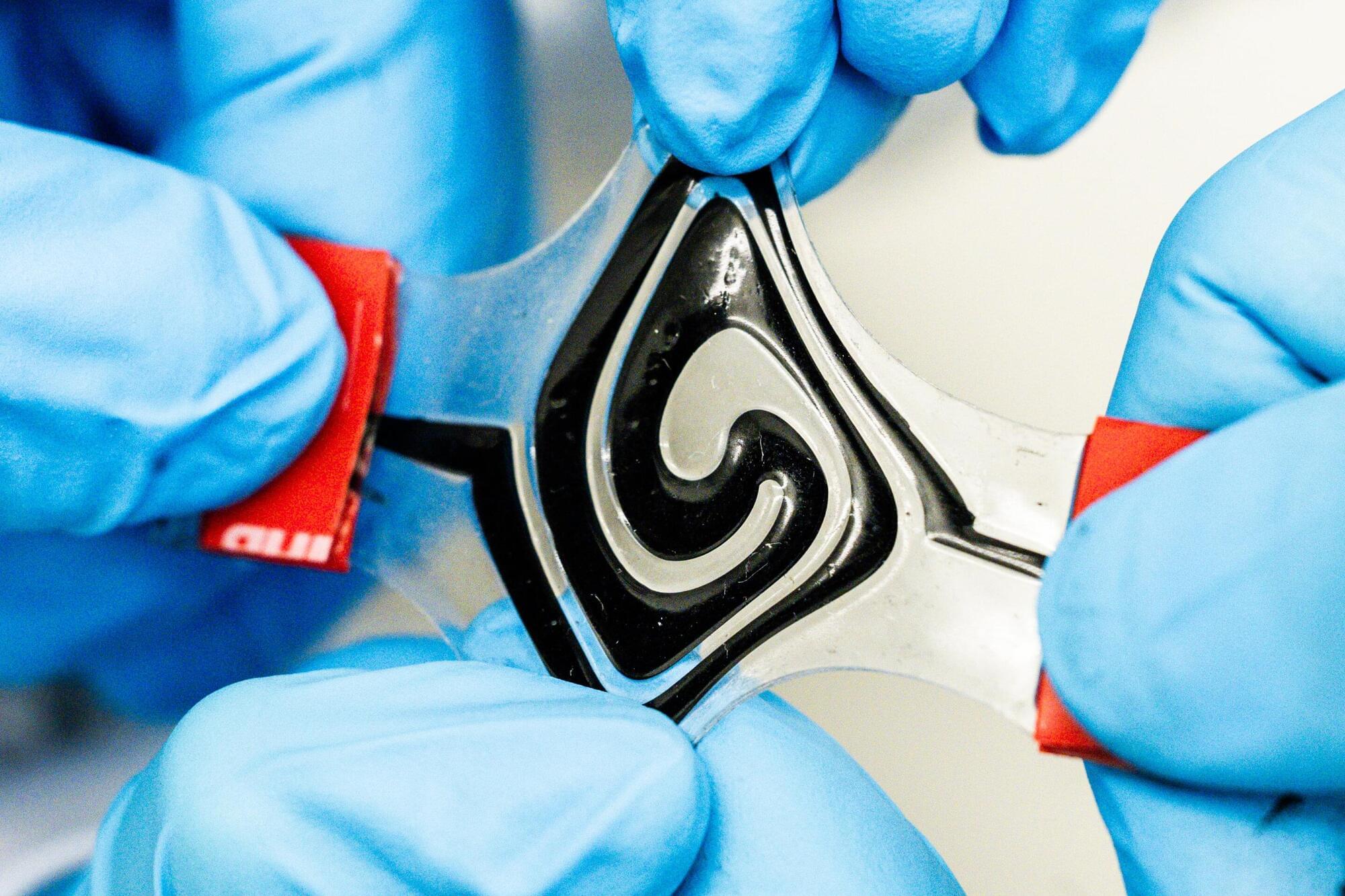
Using electrodes in a fluid form, researchers at Linköping University have developed a battery that can take any shape. This soft and conformable battery can be integrated into future technology in a completely new way. Their study has been published in the journal Science Advances.
“The texture is a bit like toothpaste. The material can, for instance, be used in a 3D printer to shape the battery as you please. This opens up for a new type of technology,” says Aiman Rahmanudin, assistant professor at Linköping University.
It is estimated that more than a trillion gadgets will be connected to the Internet in 10 years’ time. In addition to traditional technology such as mobile phones, smartwatches and computers, this could involve wearable medical devices such as insulin pumps, pacemakers, hearing aids and various health monitoring sensors, and in the long term also soft robotics, e-textiles and connected nerve implants.
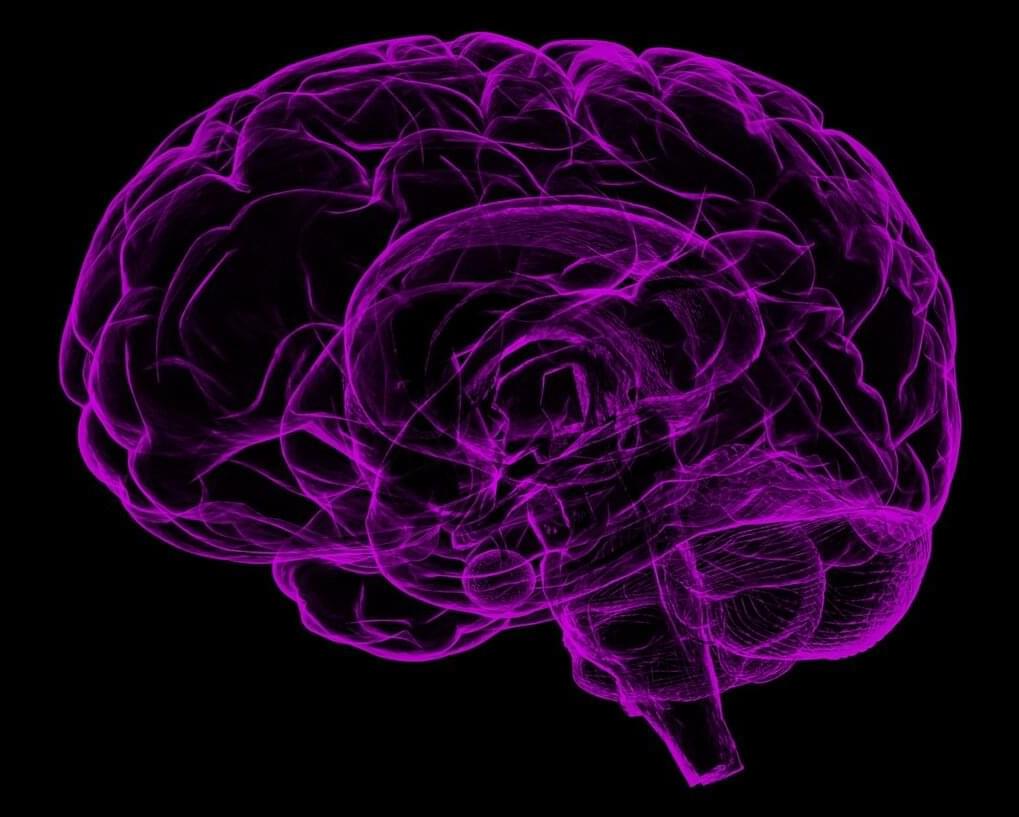
Changes in brain connectivity before and after puberty may explain why some children with a rare genetic disorder have a higher risk of developing autism or schizophrenia, according to a UCLA Health study.
Developmental psychiatric disorders like autism and schizophrenia are associated with changes in brain functional connectivity. However, the complexity of these conditions make it difficult to understand the underlying biological causes. By studying genetically defined brain disorders, researchers at UCLA Health and collaborators have shed light on possible mechanisms.
The UCLA study examined a particular genetic condition called chromosome 22q11.2 deletion syndrome—caused by missing DNA on chromosome 22—which is associated with a higher risk of developing neuropsychiatric conditions such as autism and schizophrenia. But the underlying biological basis of this association has not been well understood.
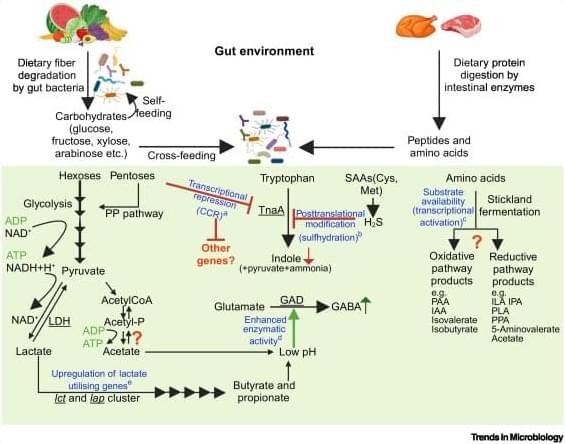
During the past two decades, gut microbiome studies have established the significant impact of the gut microbiota and its metabolites on host health. However, the molecular mechanisms governing the production of microbial metabolites in the gut environment remain insufficiently investigated and thus are poorly understood. Here, we propose that an enhanced understanding of gut microbial gene regulation, which is responsive to dietary components and gut environmental conditions, is needed in the research field and essential for our ability to effectively promote host health and prevent diseases through interventions targeting the gut microbiome.
How does the brain work? Where, and when, and why do neurons connect and send their signals? Scientists have created the largest wiring diagram and functional map of an animal brain to date to learn more. Research teams at Allen Institute, @BCMweb and @princeton worked together to map half a billion synapses, over 200,000 cells, and 4km of axons from a cubic millimeter of mouse brain, providing unparalleled detail into its structure and functional properties. The project is part of the Machine Intelligence from Cortical Networks (MICrONS) program, which seeks to revolutionize machine learning by reverse-engineering the algorithms of the brain. Research findings reveal key insights into brain activity, connectivity, and structure—shedding light on both form and function—within a region of the mouse visual cortex that plays a critical role in brain health and is often disrupted in neurological conditions such as Alzheimer’s disease, autism, and addiction. These insights could revolutionize our ability to treat neuropsychiatric diseases or study the influence of drugs and other changes on the brain.
This extraordinary achievement begins to reveal the elusive language the brain uses to communicate amongst its millions of cells and the cortical mechanisms of intelligence—one of the holy grails of science.
Learn more about this research: https://alleninstitute.org/news/scien… open science data: https://www.microns-explorer.org/ Explore the publications in Nature: https://www.nature.com/immersive/d428… Follow us on social media: Bluesky — https://bsky.app/profile/alleninstitu… Facebook — / alleninstitute X —
/ alleninstitute Instagram —
/ alleninstitute LinkedIn —
/ allen-institute TikTok —
/ allen.institute.
Access open science data: https://www.microns-explorer.org/
Explore the publications in Nature: https://www.nature.com/immersive/d428…
Follow us on social media:
Bluesky — https://bsky.app/profile/alleninstitu…
Facebook — / alleninstitute.
X — / alleninstitute.
Instagram — / alleninstitute.
LinkedIn — / allen-institute.
TikTok — / allen.institute
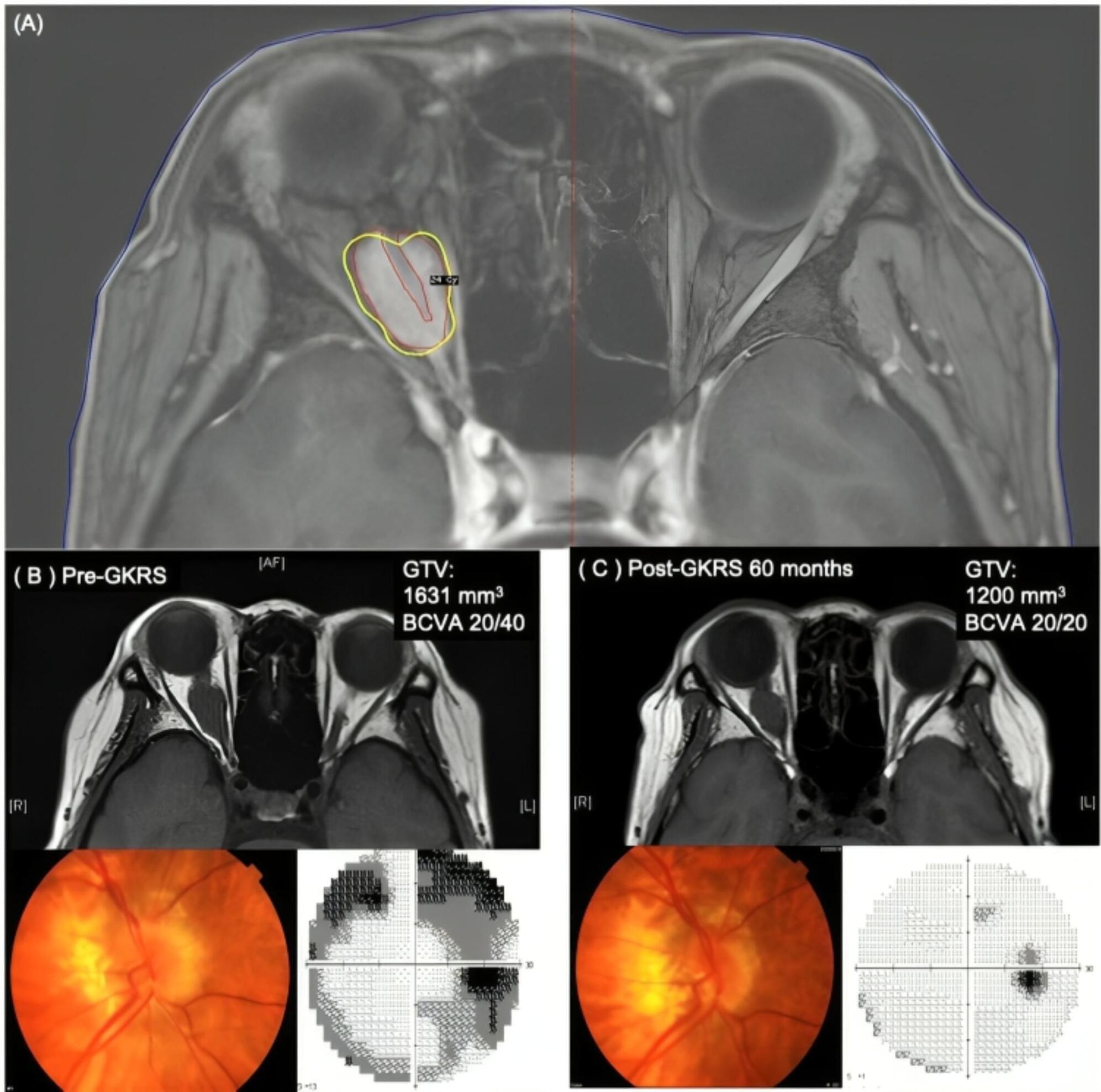
To survey the real-world effectiveness and cost of optic nerve sheath meningioma (ONSM) treating with Gamma Knife Radiosurgery (GKRS), and compare with the external beam radiation therapy (EBRT).
Retrospective, comparative study that included patients with primary ONSM treated with either GKRS or EBRT in Samsung Medical Center, Korea. The treatment response, and treatment costs were compared between GKRS and EBRT groups.
There were 34 adult patients with primary ONSM treated with either GKRS (n = 25) or EBRT (n = 9) (follow-up period: 6–207 months). The local tumor control rates (GKRS: 92%; EBRT: 100%; P = 1) and vision preservation rates (GKRS: 64%; EBRT: 67%; P = 1) were similar in both groups. The mean gross tumor volume (GTV) decreased by 21.4 ± 19.7% after GKRS and 26.4 ± 18.7% after EBRT (P = 0.4803). The complication rates did not differ between two modalities. Factors associated with better visual outcomes were pretreatment BCVA 20/50 (odds ratio: 6.000, P = 0.0234) and the absence of intracranial tumor extension (odds ratio: 30.00, P = 0.0001). GKRS reduced the total costs of care by 43% under Korean National Health Insurance System (NHIS).
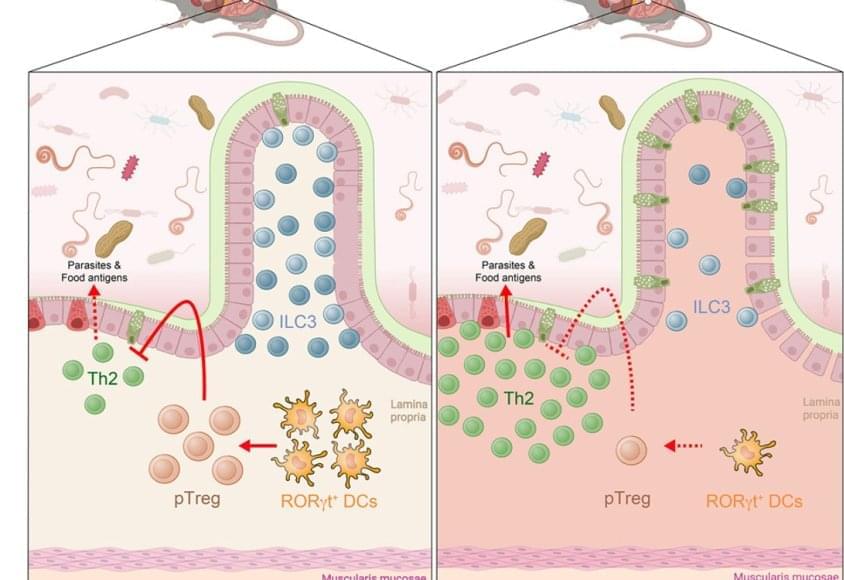
Nexus between genomic instability and metabolism in cancer.
Genomic damage detection and repair in the cells is enabled by the DNA-damage response (DDR).
Although DDR inhibition has been used to treat various cancers, drug resistance has been observed in the long run owing to the ability of tumor cells to undergo energetic metabolic reprogramming.
In addition, tumor cells’ ability to sense oxidative stress influenced by metabolic intermediates, leading to impaired redox metabolism, thus creating redox vulnerabilities.
The researchers in this review summarize recent advances in understanding the crosstalk between DDR and metabolism and discuss combination therapies that target DDR, metabolism, and redox vulnerabilities in cancer.
They also outline challenges in targeting metabolism and strategies to improve the shortcomings. https://sciencemission.com/Unraveling-the-nexus
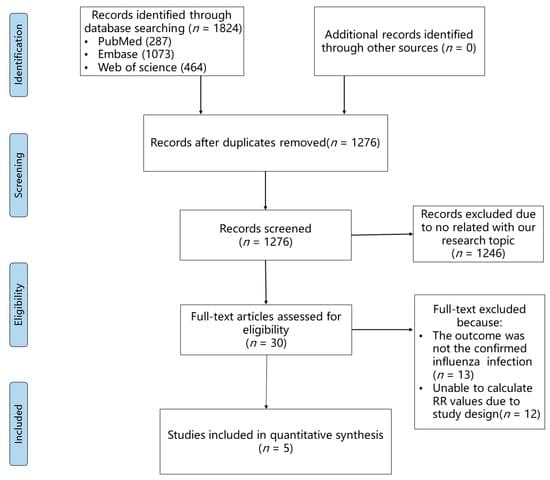
Previous studies reported that the association between statins use and influenza infection was contradictory. A systematic review and meta-analysis of longitudinal studies were performed to determine the association between statins use and influenza susceptibility. The literature search was conducted in PubMed, Embase, and Web of Science, from each database’s inception to 21 May 2023. The fixed effect model and random effects model were used for data synthesis. In our study, a total of 1,472,239 statins users and 1,486,881 statins non-users from five articles were included. The pooled risk ratio (RR) of all included participants was 1.05 (95% CI: 1.03–1.07), and there were still significant differences after adjusting for vaccination status. Of note, RR values in statins users were 1.06 (95% CI: 1.03–1.08) in people aged ≥60 years old and 1.05 (95% CI: 1.03–1.07) in participant groups with a higher proportion of females. Administration of statins might be associated with an increased risk of influenza infection, especially among females and elderly people. For those people using statins, we should pay more attention to surveillance of their health conditions and take measures to prevent influenza infection.